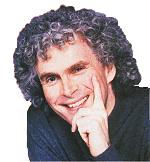Performed in a vast opera house, Ariadne can often become drained of its colour and vibrancy. How refreshing, therefore, to have a concert performance which sparkled and glittered and made every note of this beautiful score appear as if newly minted.As in all of Strauss' operas, the most memorable parts are always sung by women. Here we had luxury casting indeed - Angelika Kirschslager produced a tone of bronzed anaglyph, the voice plush in its lowest register and diamond-bright in its upper. Here was a Composer who knew what she was doing. Christine Schäffer was kaleidoscopic as Zerbinetta, the coloratura dazzling, her long solo, almost note perfect, a thrilling display of vocal pyrotechnics. Emotion recollected in something near tranquility was threaded from every note she sang. As Ariadne herself, Anne Schwanewilms (making her London debut) was sensational. The voice was powerful enough to ride the orchestra, and had no difficulty whatsoever in making the octave jump to a sustained pianissimo high C. When landed, it floated into the auditorium like a vast and fragrant perfume. Her lines arched as if drawn by a compass, so smooth and natural is her rich soprano. The sensitivity and emotion of her phrasing were often profoundly touching. In her great love duet with Bacchus she was spellbinding.
Anna Larson, as Dryad, produced a mural of sound as fetching as her Imperial purple gown. The Echo of Lisa Milne and the Naiad of Deborah Norman had a palette that silhouetted their sopranos neatly against that of the dark, menacing Dryad. Here the brightness rang like bells. Johan Botha, a magnificent Bacchus, simply arched his chest and the most thrilling notes emerged. This is a tenor with rare gifts, and who made his Bacchus purr like a great cat.
The Prologue had already thrown open its treasures. Thomas Allen was a flamboyant Music Master, but Hans Christian, as the Major Domo, was the real star. He flustered, he was foppish but above all he gave the narration a thrilling urgency.
Welding all of this together was Simon Rattle. He produced from the LSO playing of great beauty. He was at times expansive, but the sound was always sumptuous, whether it was from the sparkling coloration of the Prologue, or the Wagnerian passion of the closing duet. He crouched towards his orchestra and they responded by unravelling the score before us.
This was true ensemble opera at its very best.
Marc Bridle

 Return to:
Return to: